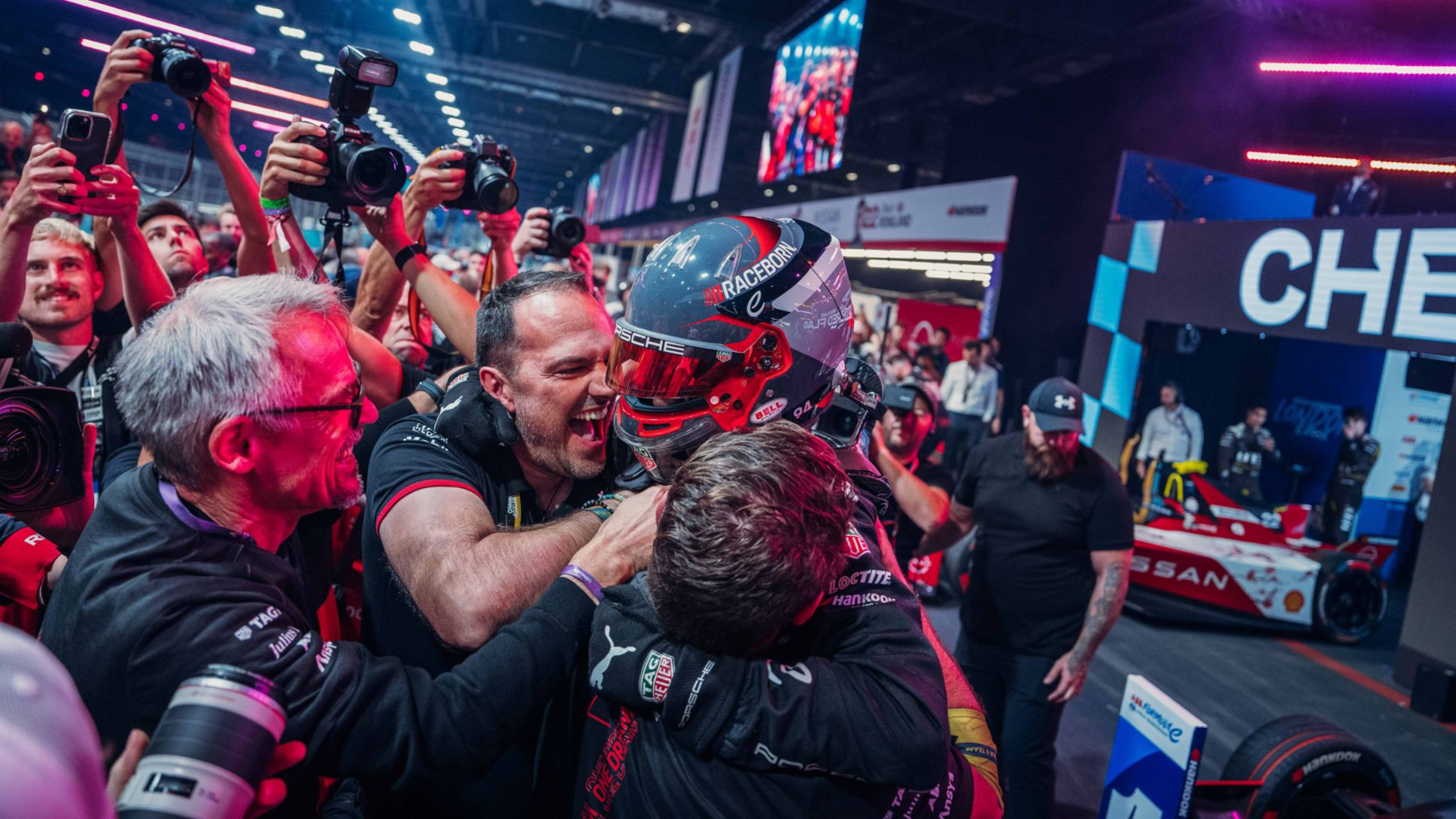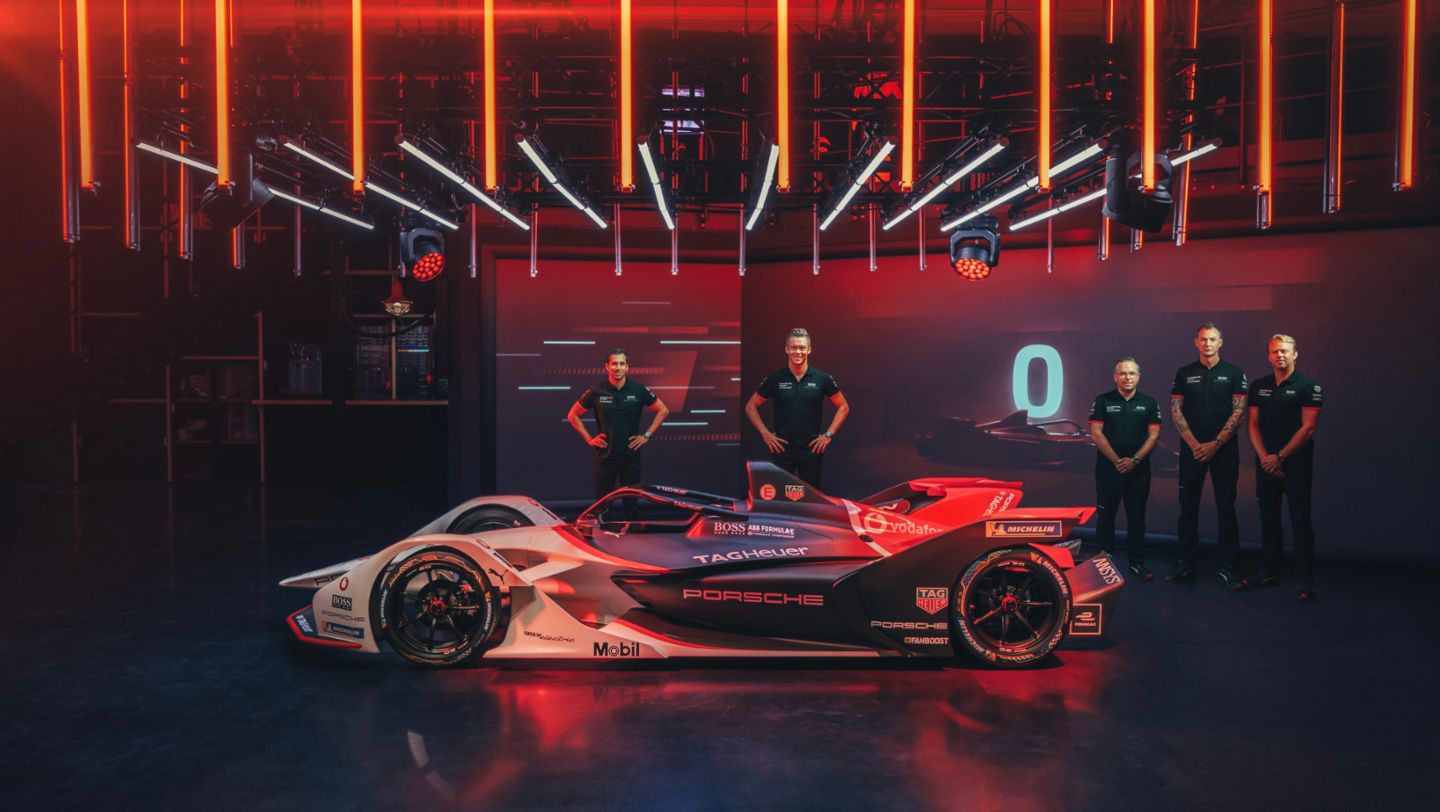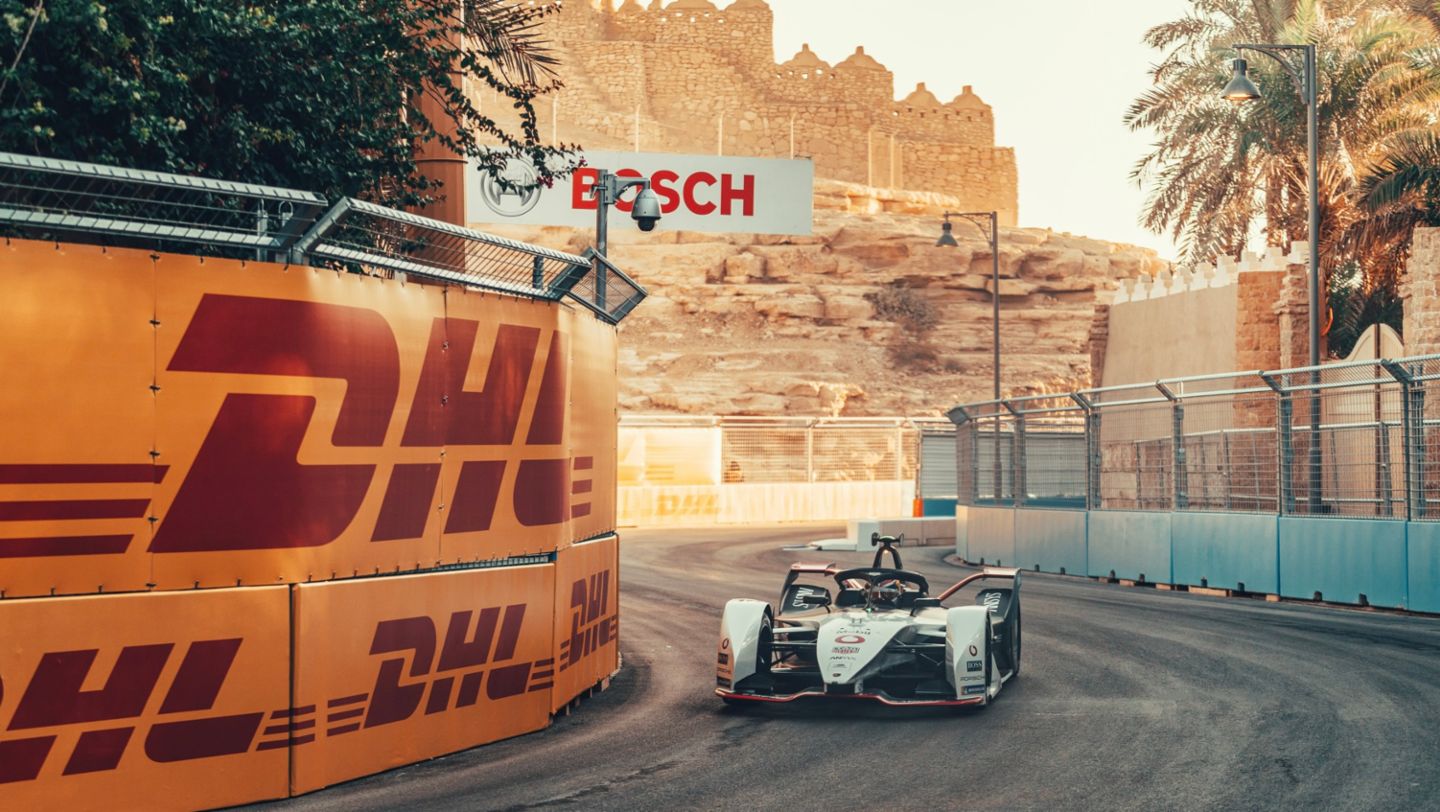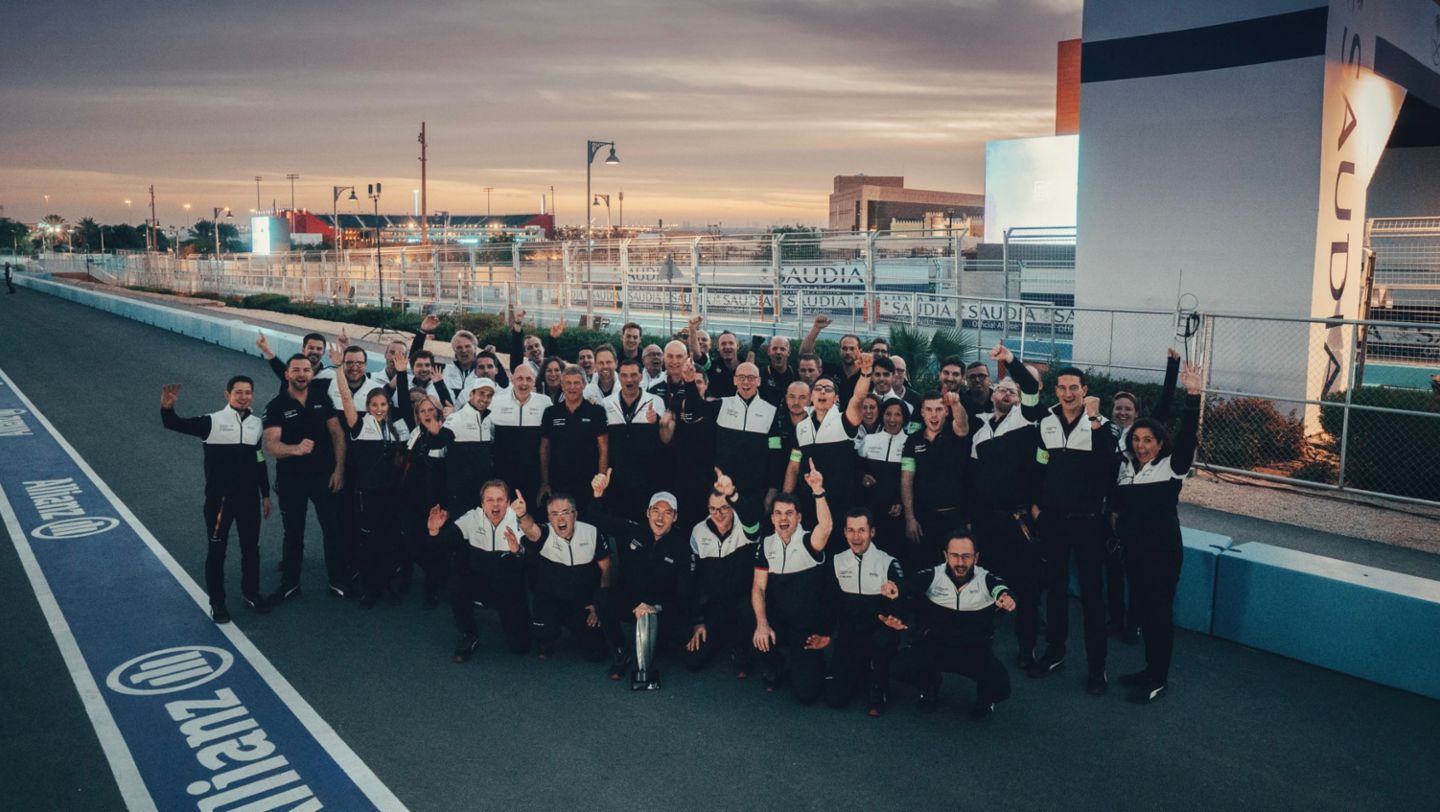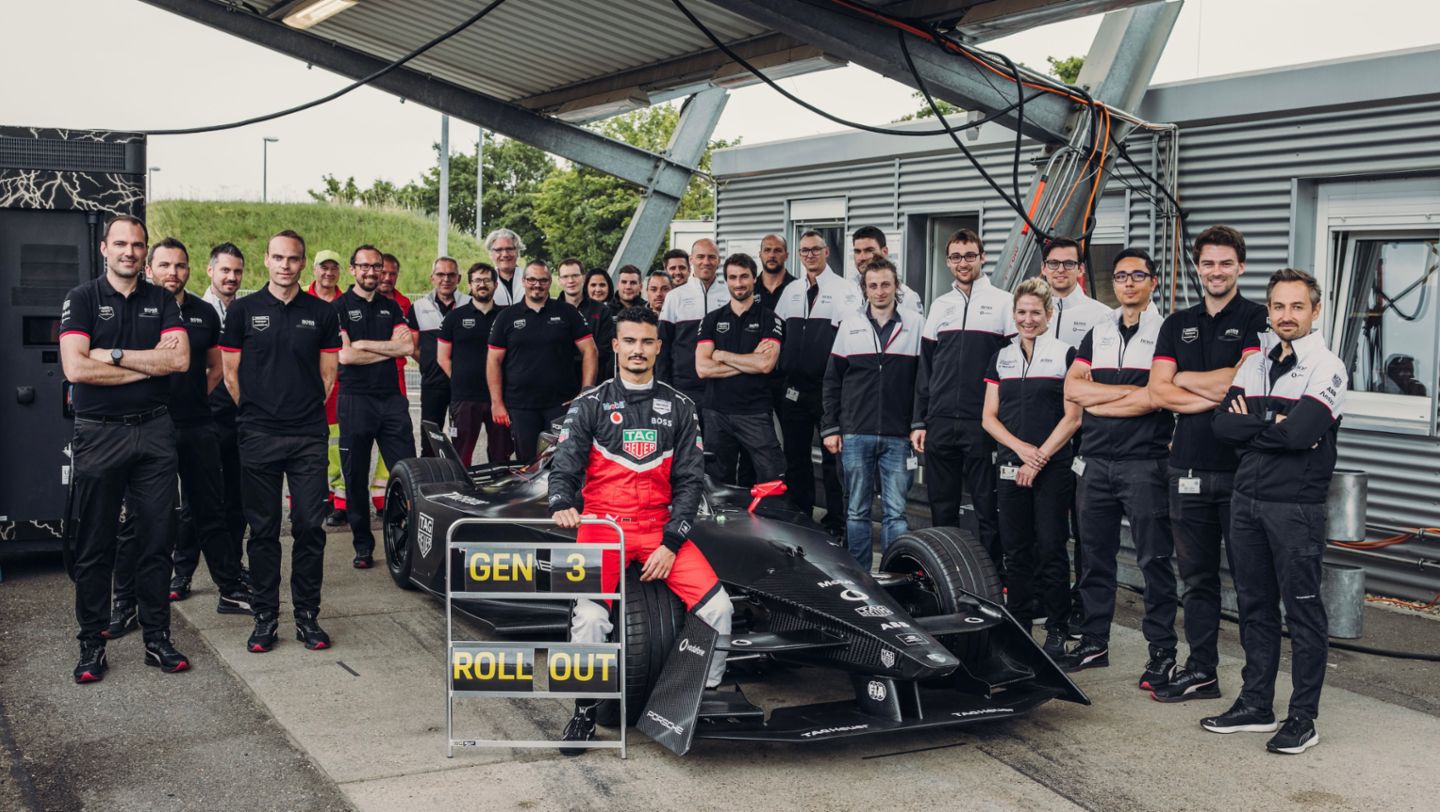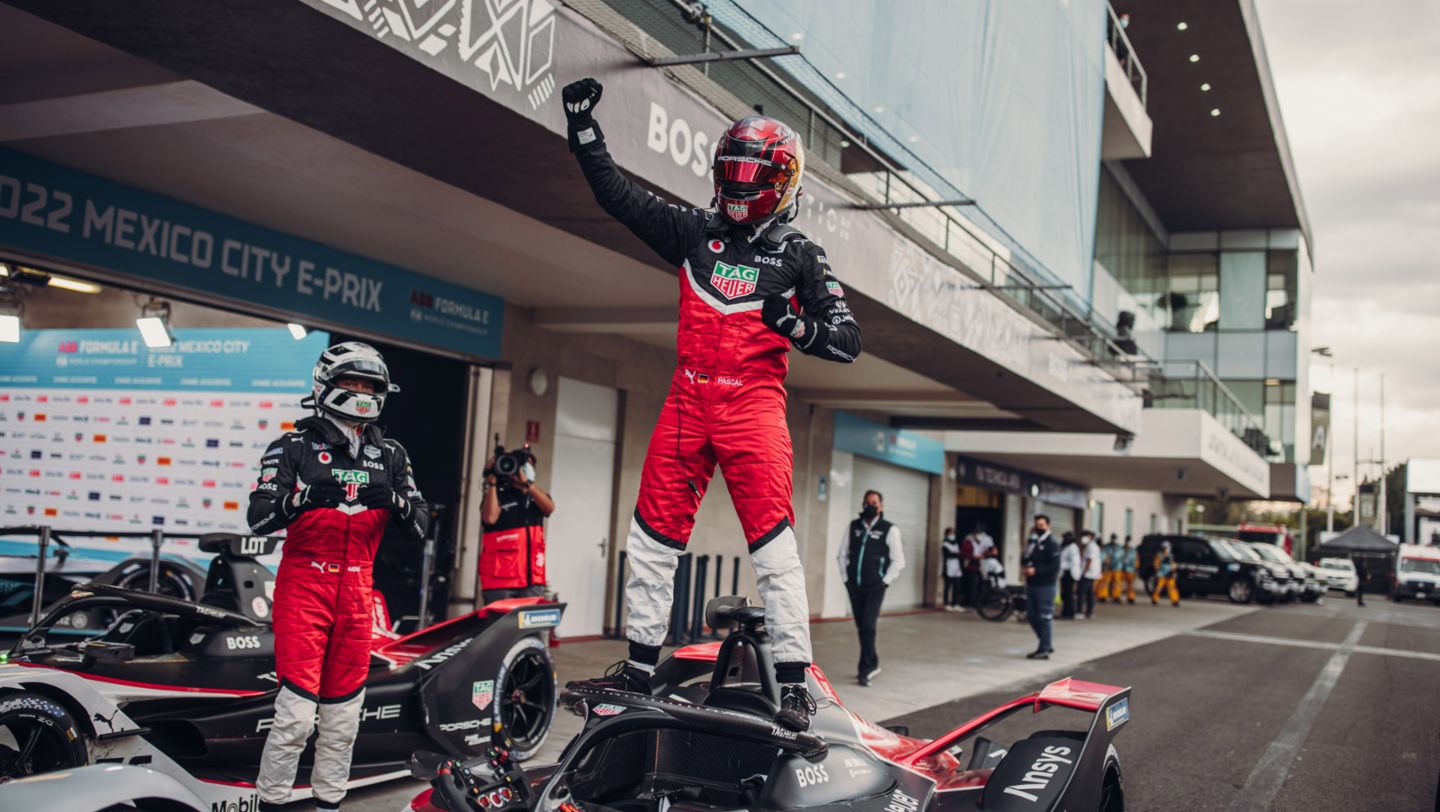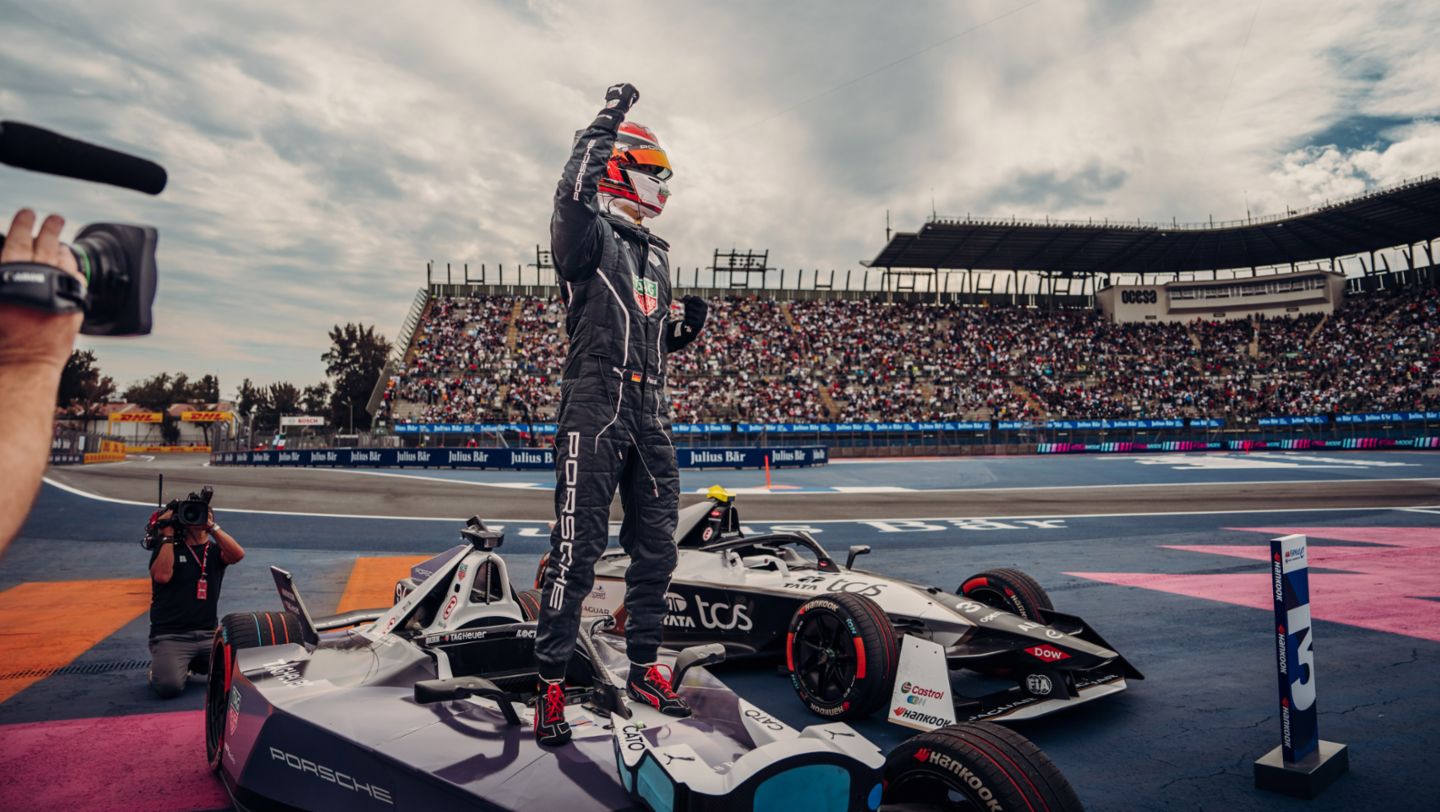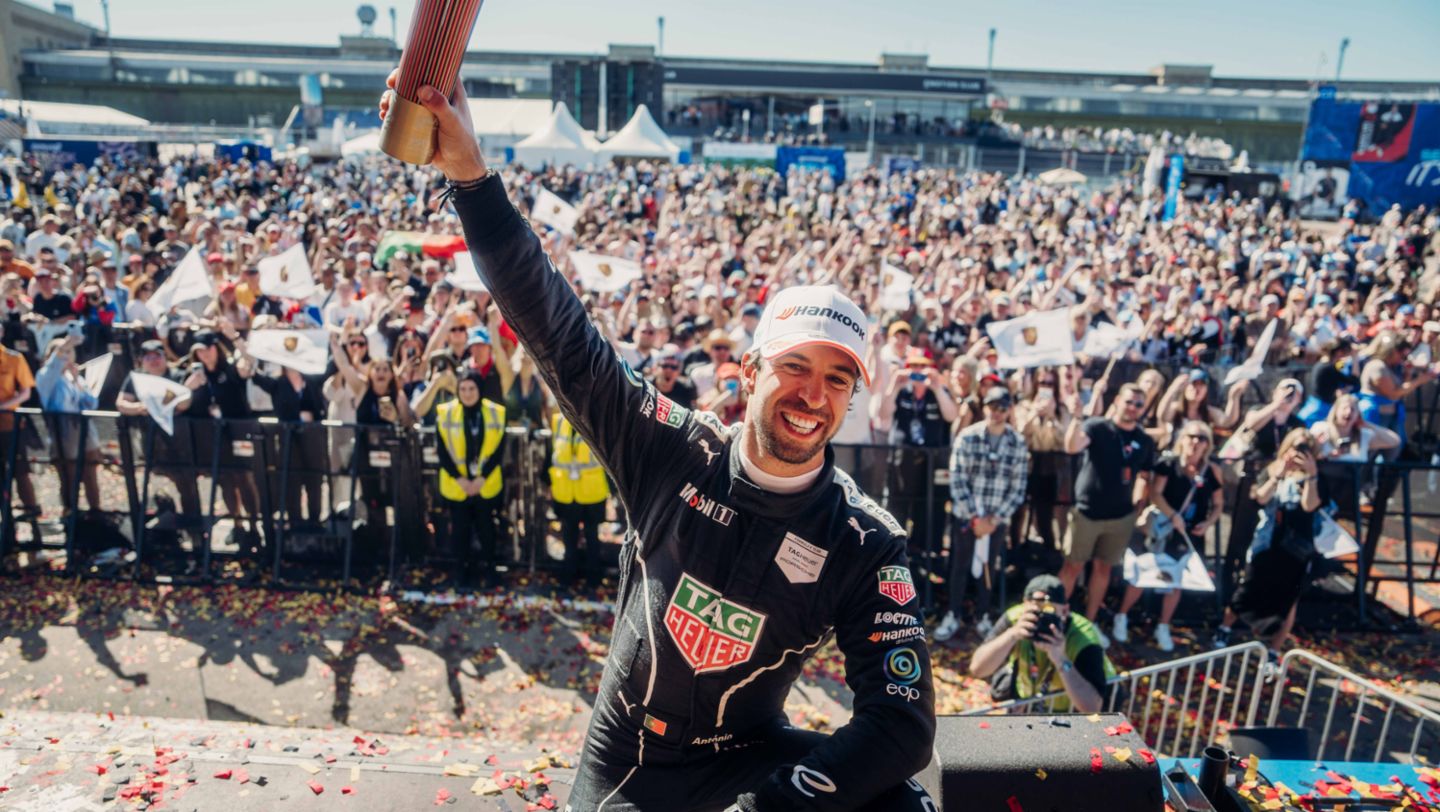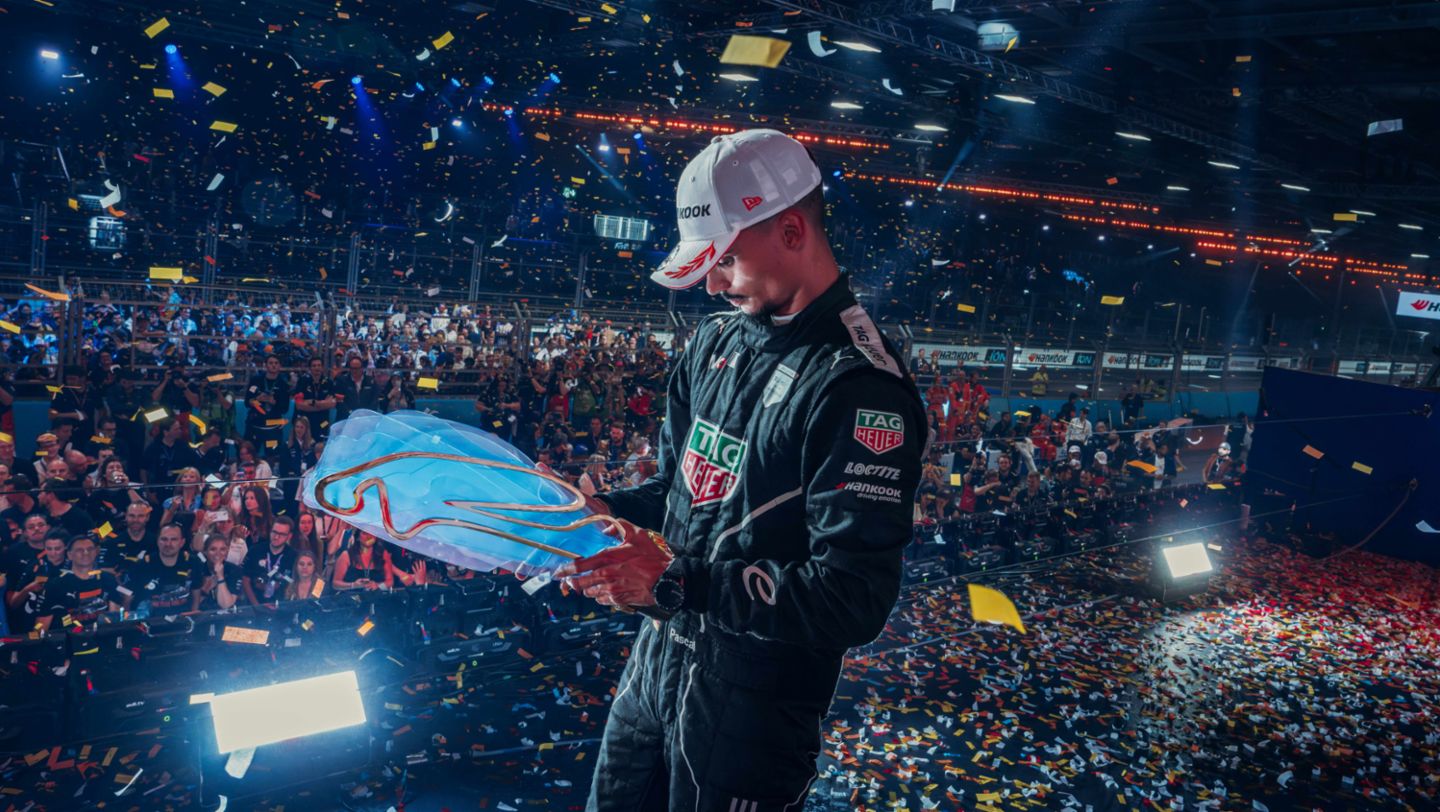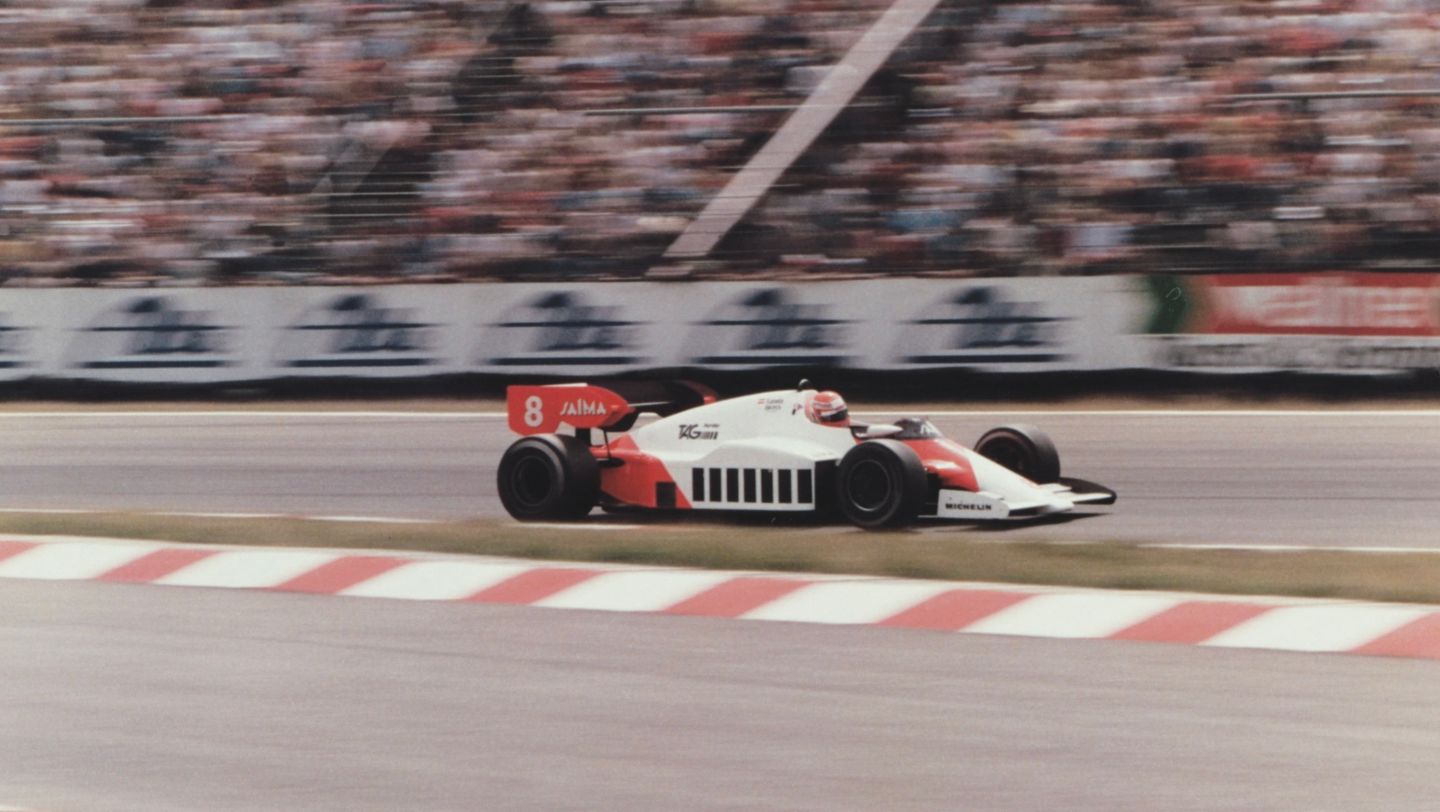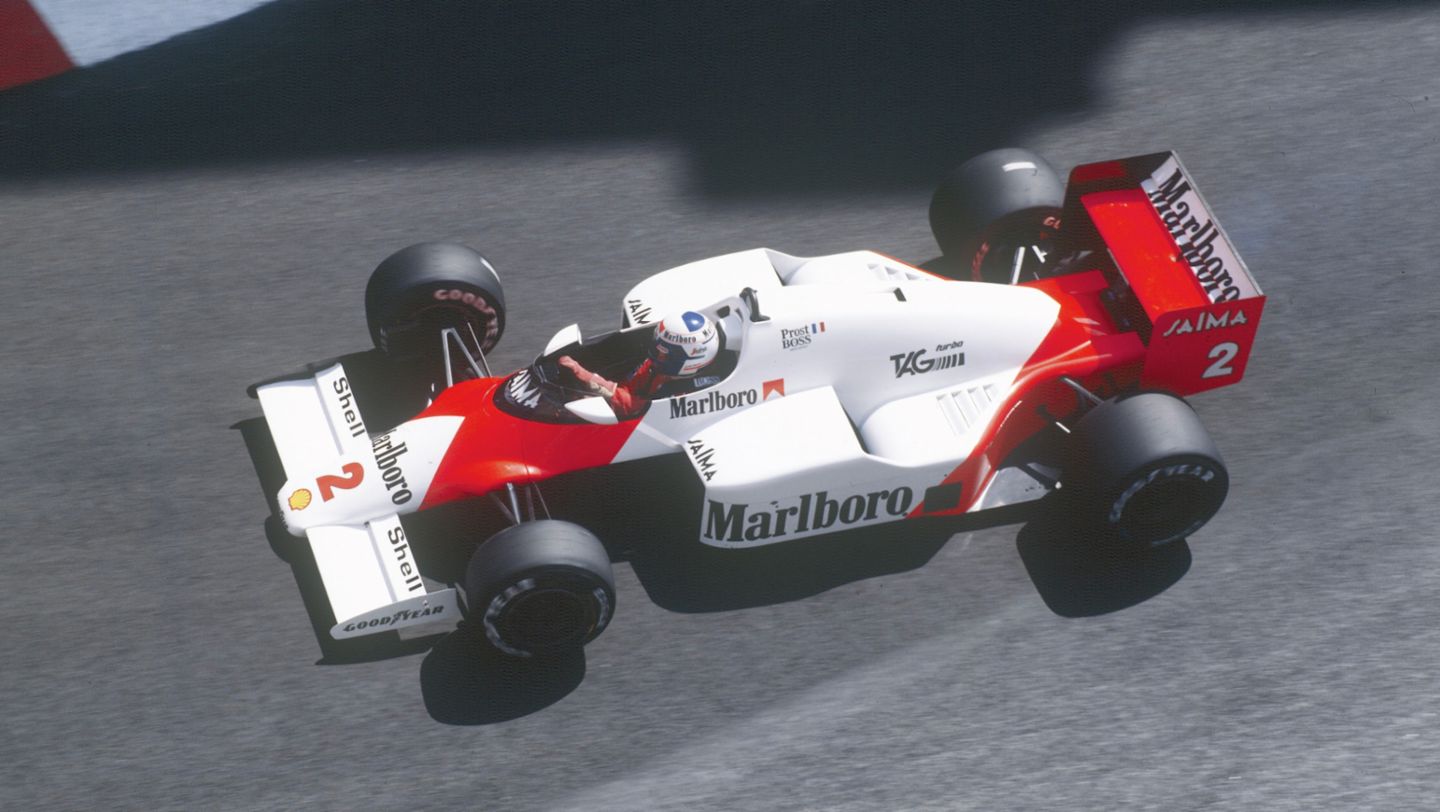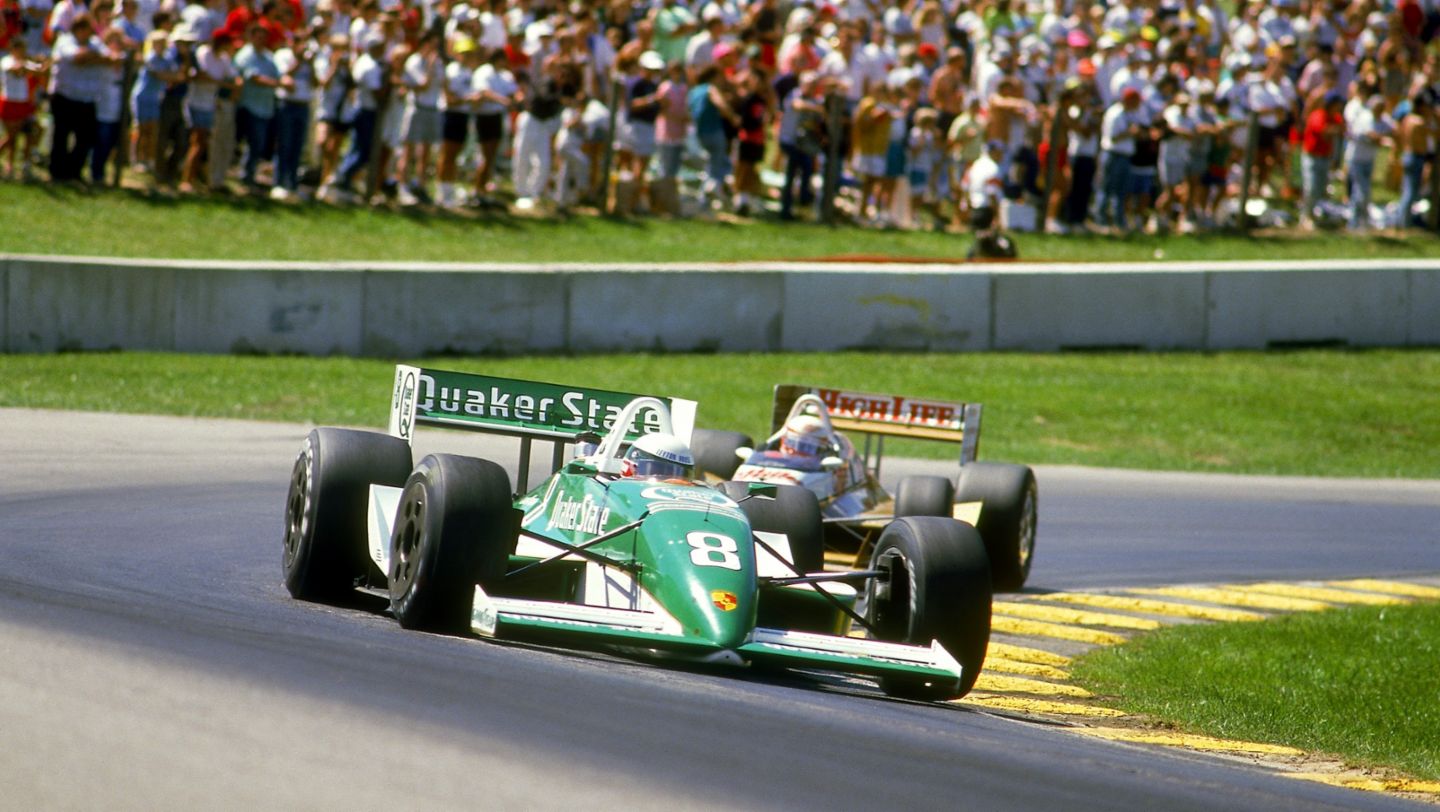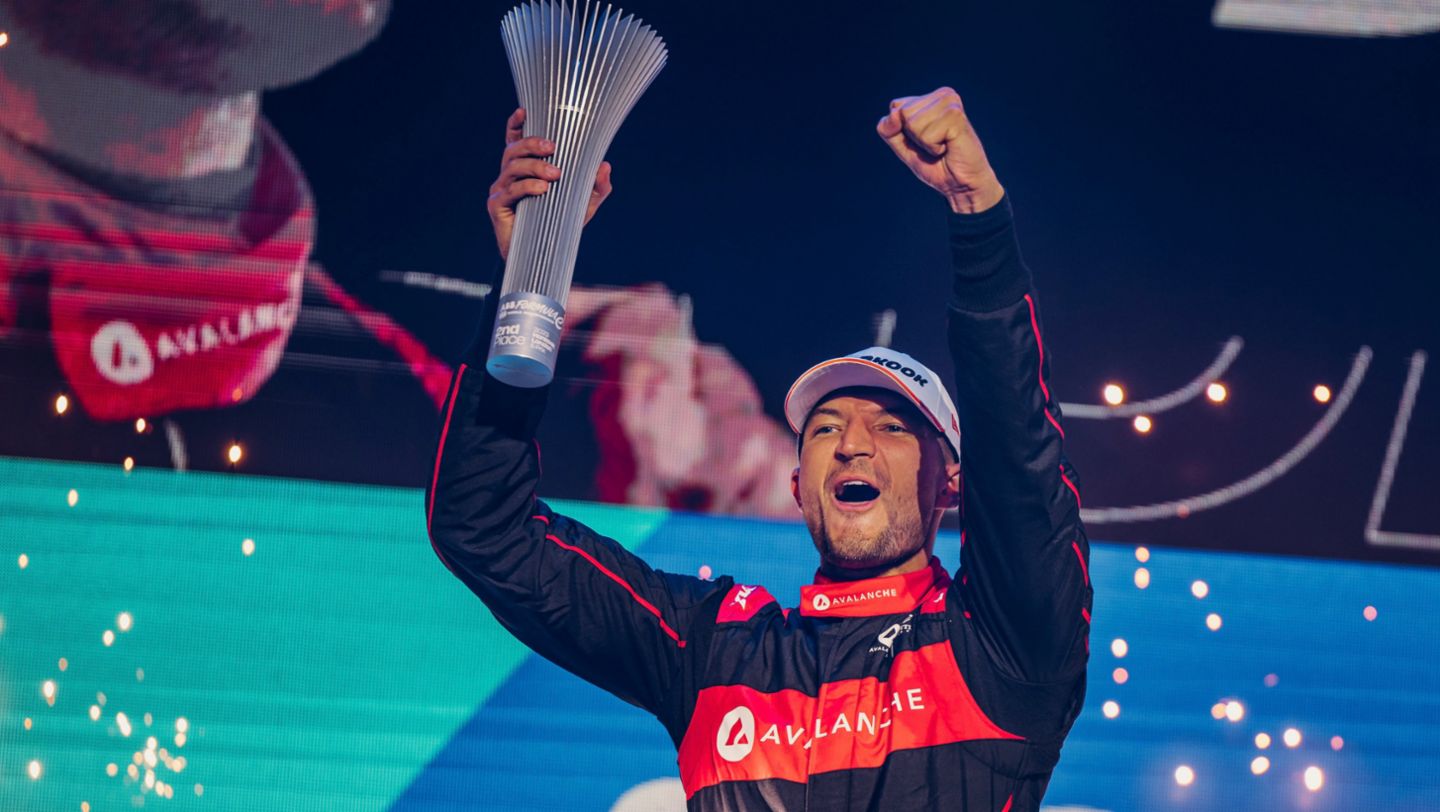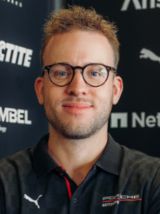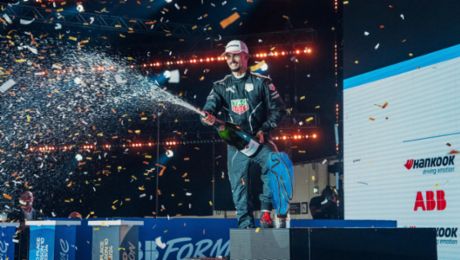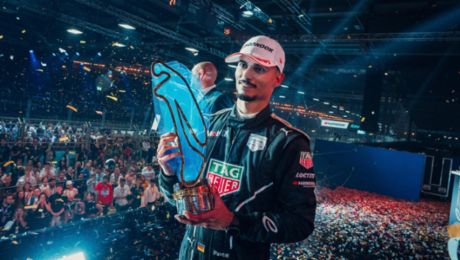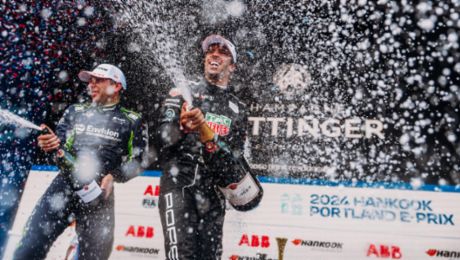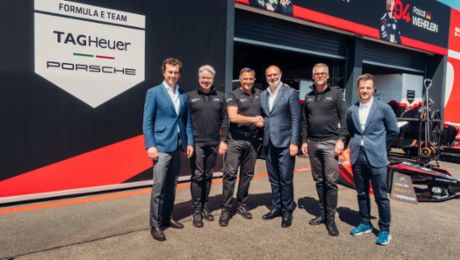New records in Formula E mark the high point for Porsche in formula racing for the time being – 40 years after the TAG Turbo engine designed by Porsche became the benchmark in Formula 1. Unlike back then, Porsche won in the latest season not just as an engine partner, but as a team – and developed far more than just the drive.
“For Porsche, the first title came last year,” says Florian Modlinger, Director Factory Motorsport Formula E at Porsche. “That was our fourth season in the series and the first in which the competition didn’t have a head start in development. When Porsche completed the very first test drives in 2019, the second generation of Formula E cars had already been racing for a year and a half. With the introduction of the third generation, all teams were once again faced with new technical rules – and we made the decisive leap in performance.”

From endurance racing to electric formula racing
Porsche entered Formula E in 2019. The commitment was intended to emphasise the sports car manufacturer’s electric ambitions. More room for in-house developments also made the innovative electric racing series technically attractive. At the race debut in Saudi Arabia in November 2019, the works team from Weissach immediately reached the podium. The first victory followed in Mexico in February 2022 – a historic 1-2 victory. However, it was only with the third generation of Formula E single-seaters, the so-called Gen3 introduced for the 2022/2023 season, that Porsche established itself at the top. The engineers in Flacht used the new scope for in-house developments and gave the Porsche 99X Electric a small technical lead over the majority of the field. The Andretti customer team brought this lead to the finish line, while the works team narrowly missed out on its first title.
“We first had to learn how to do sprint races,” explains Florian Modlinger in his role as team principal. Modlinger moved to Porsche at the beginning of 2022 after four years in Formula E with rival Audi racing team Abt. As project lead, he subsequently also took over the management of the works team. While he was already familiar with sprint races from the DTM, the Porsche team was shaped by a lot of experience from the successful endurance programme with the 919 Hybrid Le Mans prototype. “In Formula E, you have to get everything extremely to the point. There are only a few test days and little practice time on the race weekends – with capped expenditure and limited personnel. The pace is fast and the scope is huge. For a while now, we have been running three programmes simultaneously: the racing and development programme with the current car and the test programme with the Evo version. And we are already working on the completely new car generation for season 13. All of this requires maximization in all areas with many hours of work in the simulator.”
A season full of records
By the 2023/2024 season, the fifth for Porsche, the key weaknesses had been eliminated – and success came more consistently: pole position and a dominant victory for Pascal Wehrlein at the season opener in Mexico. Six more victories followed for the works team in Misano, Berlin, Shanghai, Portland and London – a new record. With seven victories in one season, the TAG Heuer Porsche Formula E Team broke the record of the Renault team e.dams (season 3). Wehrlein not only became World Champion, but also claimed the title of best qualifier. Team-mate António Félix da Costa equalled his record from 2020 with three wins in a row, taking more than anyone else this season with four victories and even crossing the finish line first five times. Thanks to Andretti driver Dennis, the highly efficient Porsche 99X Electric took eight victories in the end.
12 victories in 74 starts – no team in Formula E wins more often than the Porsche works team. In some respects, the past season in the electric world championship even surpasses the three Formula 1 titles of the TAG Turbo engine used by McLaren (Nikki Lauda 1984, Alain Prost 1985 and 1986). While Porsche designed the engine back then and McLaren was responsible for the rest of the car, Porsche not only carries out the development work for the 99X Electric, but also the construction and deployment of the cars. The development work itself also includes far more than just the electric motor: the inverter, gearbox, differential, drive shafts, cooling systems and other components such as the rear suspension components come from Weissach, as does the entire car software. The latter being of enormous importance – in the 99X Electric, but also in Porsche road cars.
Specialism in formula racing
At the end of the 1980s, Porsche learnt in the USA that formula racing at world level presents different challenges to endurance racing. From 1988, the racing department wanted to win the famous Indianapolis 500 not only with its own engine, as in Formula 1, but also with its own chassis. However, the chassis fell short of expectations. The only victory among several podium finishes followed in 1989, when the British specialists from March provided the chassis, and came on the more European-influenced Mid-Ohio circuit for sports cars of all places. After a total of three years, Porsche refocussed its resources on other projects.
With its best season to date in the ABB FIA Formula E World Championship, Porsche is now also proving its skills in formula racing and thus in the motorsport discipline that the Le Mans record winner was historically least familiar with. Florian Modlinger: “Formula E has its very own demands in terms of technology, driving and operations. The entire team has mastered these challenges incredibly well. We can all be very proud of this; after all, we are also a figurehead for the company’s capabilities. Nevertheless, we remain hungry: next season we also want to win the Teams’ World Championship.”

Porsche in Formula E
Porsche contested its fifth Formula E season in 2023/2024. In addition to the works-run TAG Heuer Porsche Formula E Team, the American customer outfit Andretti Formula E competed with the Porsche 99X Electric. The concept of the innovative electric racing car was developed at the net CO2-neutral Weissach facility. With its commitment to the world championship, Porsche underlines its commitment to take a leading role among traditional automobile manufacturers in the areas of electrification, sustainability and technology. In Formula E, the brand gains valuable insights for its electric series-production sports cars.
